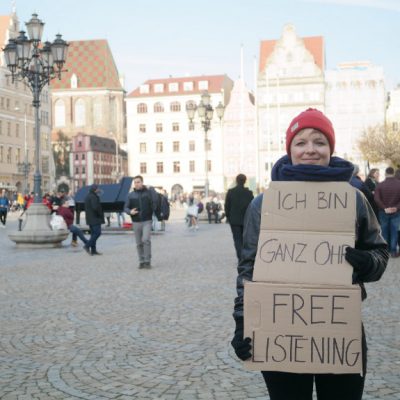Article
Inspiration behind the project
This project is rooted in April’s personal family history. As a descendant of Japanese American WWII incarcerees, she has long been curious about this moment in history and how its legacy can be mobilized in the service of collective resistance to subsequent racial discrimination and state carceral violence.
In 2021, nearly 300 Japanese Americans, including April, submitted personal testimonials to the House Judiciary Committee in support of HR 40, legislation that would create a commission to examine the legacy of enslavement and propose appropriate remedies. Coming to this Fellowship with an eye toward cross-cultural solidarity in reparations advocacy, she was fascinated to learn while in Berlin that Germany has refused to extend accountability for its colonial legacy – namely its genocide against Ovaherero and Nama people in present-day Namibia.
April came to the Humanity in Action Fellowship with an eye towards cross-cultural solidarity in reparations advocacy.
Project development
April began by identifying four major reparations campaigns in the U.S. and Germany:
- Black American descendants of enslavement
- Jewish diasporic survivors and descendants of the Holocaust
- Japanese American survivors and descendants of incarceration camps
- Ovaherero and Nama Namibian descendants of genocide in German South West Africa
April conducted internet research using free, online, and publicly accessible content.
April then conducted internet research to identify major moments in these campaigns, using free, online, and publicly accessible content such as the Densho Encyclopedia and news articles.
Project implementation
After identifying key moments in each campaign, April organized these moments temporally and inputted them into the Northwestern University Knight Lab StoryMapJS tool according to location.
Her aim was to situate these campaigns in conversation with each other, highlighting how both the U.S. and Germany have extended reparations in response to some campaigns and refused to do so for others, and to suggest opportunities for cross-campaign solidarity.
The Action Project remains in progress. You can view April’s findings here.
Updated November 2025




